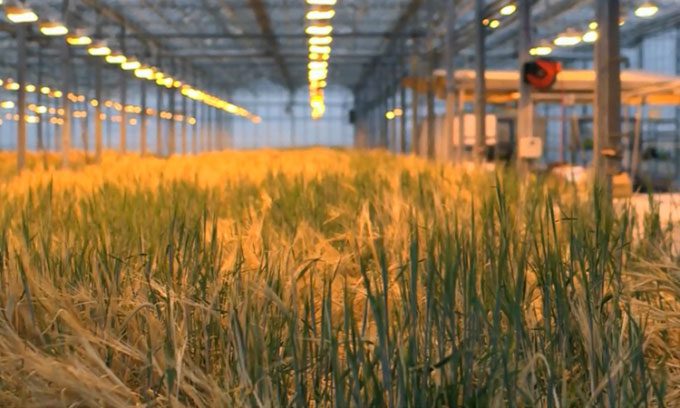ORF Genetics is cultivating 130,000 genetically modified barley plants to harvest protein for lab-grown meat production.
The research team at ORF Genetics is growing 130,000 genetically modified barley plants inside a 2,000 m2 greenhouse on the Reykjanes Peninsula, Iceland, with a special purpose – to create lab-grown meat, as reported by Futurism on October 12. The greenhouse is equipped with an advanced hydroponic system that utilizes volcanic pumice to grow these plants.

Barley grown in the ORF Genetics greenhouse. (Photo: BBC).
Experts will harvest the barley grains and refine them to extract protein “growth factors” – proteins that stimulate the development of specific tissues. Growth factors play a crucial role in promoting cell differentiation and division, occurring in many organisms, including humans, plants, insects, and amphibians.
Barley is an ideal crop for producing growth factors because it can grow in various climates and does not cross-pollinate with surrounding plants.
The growth factors can then be used to cultivate lab-grown meat, helping the meat production industry to become less reliant on animals in the future. In 2010, ORF Genetics also introduced a skincare product using growth factors derived from plants through biotechnology.
After 10 years, the company hopes to penetrate the cell-cultured meat market. “The population is increasing, and we need to provide food for everyone. We don’t need to kill animals; we can just take stem cells from them,” said Arna Runarsdottir, the protein technology director at ORF Genetics.
Producing meat in laboratories requires less land and energy, while also generating less hazardous waste. Runarsdottir noted that this is a more viable and environmentally friendly solution compared to traditional meat production. According to the BBC, several companies producing lab-grown meat products are already using growth factors from ORF Genetics.


















































